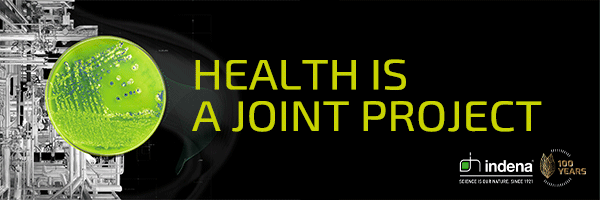Pharmaceuticals
First two CAR-T cell medicines recommended for approval in European Union 2nd July 2018
The European Medicines Agency (EMA) has recommended the first two marketing authorisations for CAR-T cell medicines in the European Union. Kymriah (tisagenlecleucel) and Yescarta (axicabtagene ciloleucel) are advanced therapies for blood cancer. They belong to a new generation of personalised cancer immunotherapies that are based on collecting and modifying patients’ own immune cells to treat their cancer.
Kymriah and Yescarta are also the first medicines supported through EMA’s PRIority MEdicines (PRIME) scheme to receive positive opinions from the Committee for Medicinal Products for Human Use (CHMP). The voluntary scheme provides early and enhanced scientific and regulatory support to medicines that have the potential to address, to a significant extent, patients’ unmet medical needs. Kymriah was granted eligibility to PRIME on 23 June 2016, for the treatment of acute lymphoblastic leukaemia (ALL). Yescarta was granted eligibility to PRIME on 26 May 2016 for the treatment of diffuse large B-cell lymphoma (DLBCL).
“CAR-T cells transform the fight against serious and often fatal diseases in the EU,” said Dr Martina Schüssler-Lenz, chair of the Committee for Advanced Therapies (CAT). “Kymriah and Yescarta offer an innovative approach where patients’ cells are reprogrammed and reinjected to attack the cancer.”
Because Kymriah and Yescarta are advanced-therapy medicinal products (ATMPs), they were assessed by the CHMP and the CAT, the Agency’s expert committee for cell-, gene- or tissue-based medicines which is responsible for the evaluation of these products. The CAT adopts an advisory opinion, which is taken into account by the CHMP when giving its recommendation regarding the authorisation of the medicine concerned.
“Innovative treatments such as CAR-T cells have potential to change the outlook for patients with cancer, but they also come with new scientific and regulatory challenges,” commented Dr Tomas Salmonson, Chair of the CHMP. “From the beginning, we have worked to establish a robust system of data collection for the post-authorisation phase that would suit the specificities of these two medicines. We have used a wide range of tools –scientific advice, a specific workshop on patient registries for CAR-T cells, PRIME, to name just a few, to enable us to define the methods to tightly monitor the benefit-risk profile of these medicines and manage their risks once they are on the market, so that patients can benefit from these innovative treatments.”
The main safety concerns related to the administration of CAR-T cells are cytokine release syndrome (CRS), which is a systemic response to the activation and proliferation of CAR-T cells causing high fever and flu-like symptoms, and neurologic toxicities. Both can be life-threatening and in some cases even fatal. Monitoring and mitigation strategies for these side effects are described in the product information and in the risk management plan that is an integral part of the authorisation. CRS can be treated successfully with RoActemra (tocilizumab). The CHMP also recommended adding the treatment of CAR-T cell induced CRS as an indication for this medicine.
Another important risk management measure for Kymriah and Yescarta is the utilisation of a patient registry to monitor the long-term safety and efficacy of these therapies, as a condition for the marketing authorisation. The application of registries to support the benefit-risk evaluation of CAR-T cell products and their post-authorisation follow-up was discussed in a specific workshop in early 2018, as part of EMA’s initiative on patient registries. Furthermore, EMA has qualified a registry for collection of post-authorisation safety and efficacy data; this qualification opinion is now open for public consultation.
Kymriah is indicated for the treatment of paediatric and young adult p atients (up to 25 years of age) with B-cell ALL that is refractory or in second or later relapse, and in a dult patients with relapsed or refractory DLBCL after two or more lines of systemic therapy.
Yescarta is indicated for the treatment of adult patients with relapsed or refractory DLBCL and primary mediastinal large B-cell lymphoma (PMBCL) , after two or more lines of systemic therapy.
The opinions adopted by the CHMP are an intermediary step on Kymriah’s and Yescarta path to patient access. The CHMP opinions will now be sent to the European Commission for the adoption of decisions on EU-wide marketing authorisations. Once the marketing authorisations have been granted, decisions about price and reimbursement will take place at the level of each Member State, taking into account the potential role/use of these medicines in the context of the national health system of that country.
Detailed information about the support offered by the Agency during the development, including information on the topics for which scientific advice was obtained, and the assessments of these two medicines will be made public in their respective European Public Assessment Reports (EPARs).


